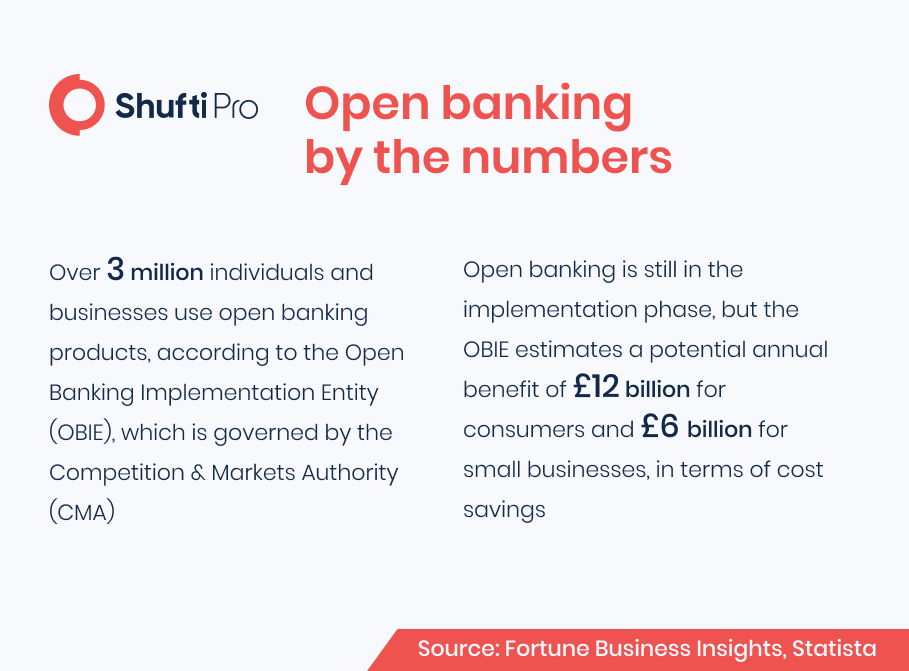Digital Identity Verification for Open Finance & FinTech Platforms

Financial applications in the modern world have been sub-categorized into open and closed banking. While closed banking systems are more like traditional banking systems and are limited in terms of applications, open finance is a system that opens doors for new innovations. Open finance is a system designed to simplify data sharing and allow better insights into new financial applications. In other words, the difference between closed and open finance is clarified by the ongoing technological innovations as well as business models that lead the way to a more open system.
Open Finance – An Overview
The motive behind open finance systems is the same as FinTech companies – to bring together financial information from the different services that a customer is taking, and then create personalized services according to their requirements. However, there is a difference between open banking and open finance. Open banking is focused on banking data, whereas open finance covers a wider spectrum of multiple financial services including investments, credits, mortgages, and insurance. In addition to the information from financial services, open finance is designed to incorporate data from non-financial institutions that use some kind of financial service for their products and services. In simple terms, open finance holds the potential to bring together an individual’s entire digital financial activities in one place.
Although the concept of open finance is still new, it provides the complete control and authorization of financial data in the hands of the customers. This means that the customer is in charge of information sharing and safekeeping. The core concept is based on the use of APIs in open banking to bring together data from different financial services. That being said, the legal status and technical specifications regarding open finance, including the sharing agreements, are still to come.
How Open Finance Transforms Financial Services
In March 2201, the UK’s Financial Conduct Authority (FCA) issued an Open Finance Feedback Statement, which suggested that the distribution and re-use of financial information must take place in a safe and ethical environment with informed consumer consent. As a result, if any customer seeking financial services allows a third party to access and process their financial information, they can receive customised services according to their needs. As the authorisation for the information is in the customer’s hands, risks of fraud and financial crime arise in the absence of identity verification checks.
While the demand for digital financial services is evident from the fast-paced growth of FinTech companies, it is also important to address the issue of identity theft. With APIs and advanced technology, open finance can become the ideal solution for financial operations – but not without robust identity verification checks. Moreover, the steady growth of these digital platforms has urged global financial regulators to put together the necessary legal structures that will secure the interests of financial institutions as well as their customers.
Why Open Finance Must be Secure
In any kind of online service, especially financial services, the protection of sensitive information is a top priority. The major question for open finance is whether or not the customers will actually adopt it. The UK FCA’s Feedback sheds light on open banking and says that the “biggest single barrier to customer uptake was consumer sentiment and awareness.” Even when customers do realise its benefits and open finance is adopted on a large scale, the element of customer authentication is essential.
Open finance offers the management of all financial activities from a unified platform. It also automates the onboarding of customers to new financial services. Open finance allows the seamless processing of operations that would normally go through delays and also gives the customer access to personalised financial services. The innovation of open finance is expected to lower the switching costs when customers wish to move to a better service. It will also represent complicated financial data to the customers in a simplified view, making it more convenient for the customer to have a clearer view of personal and professional accounts.

The ability of open finance platforms to access financial data from different sources can also assist the growth of automated financial advisors in the form of advanced technology. These advisors use machine learning algorithms to generate a customised investment management system without the need for human experts. In this way, open finance can ultimately improve the decision-making process in financial operations and make it more convenient for customers to manage their funds.
Apart from streamlining financial processes, open finance is expected to unlock doors for new types of financial services for improved productivity. This improved productivity can also result in a more comprehensive analysis of transaction history and help in mitigating the risks of money laundering and terrorist financing. Additionally, it will help cut down the costs and improve the global reach of financial services along with new regulatory obligations to ensure financial stability and growth.
The Need for Trust in Financial Services
Whether we consider the upcoming developments in FinTech or the new applications for managing finances, the adoption of open finance will be largely dependent on trust and online safety. The question that arises in the customers’ minds is whether or not a specific financial service will protect their sensitive financial data. Developers and service providers need to carefully optimise their data handling processes and keep in mind the legal and technical standards along with audit and regulatory requirements.
From the customer’s point of view, it’s important to consider the ease of access to large amounts of sensitive data and to make it appear simple to the customer. For instance, even when larger amounts of data are being processed to provide control in the hands of the customer, there needs to be a certain level of standardisation so that the process to access sensitive data is transparent and fair.
One of the decisive factors for the success of open finance is digital identity. Service providers that fall under the financial laws and regulations need to adhere to Know Your Customer (KYC) regulations. For this reason, robust identity verification measures need to be incorporated into open finance platforms to ensure security for the customers as well as a compliant system.
Key Takeaways
Developing a successful open finance platform clearly requires taking several aspects into consideration. However, in the best case, there is huge potential in terms of economic growth as well as the convenience of financial services.
With Shufti’s robust identity verification solution, financial service providers can secure their platforms from fraud and provide their customers with a safe place to carry out their financial operations. In this way, open finance can be successful by building trust among customers.
Want to learn more about identity verification for open finance platforms?

 Explore Now
Explore Now













